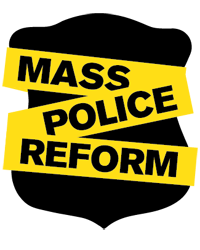Court orders Boston police to reinstate fired officer

By Edward Mason and Tom Mashberg GLOBE CORRESPONDENTS JULY 22, 2015
A Suffolk Superior Court judge has upheld a decision by an arbitrator who ruled that the Boston Police Department must reinstate an officer fired in 2012 for allegedly using excessive force during an arrest and then lying about the incident.
The city had challenged the ruling, involving Officer David C. Williams, contending that the commissioner had the right to fire officers and that it would violate state law and sound public policy to cede that power to an arbitrator. In a June 29 decision, Superior Court Judge Dennis J. Curran agreed that the commissioner should have the “right and authority” to “manage and discipline” his officers. But he found that state law and legal precedent bound him to uphold the arbitrator’s 2013 ruling.
“The court is constrained by the arbitrator’s finding of fact,” Curran wrote. “The charges against Officer Williams represent a potentially serious breach of [his] oath and the public trust. Nonetheless, no matter how valid and poignant the police department’s concerns are, it is beyond the court’s power to grant the requested relief.”
Former Commissioner Edward F. Davis fired Williams over the arrest of Michael P. O’Brien, then of Methuen, in the North End on March 16, 2009. A police trial board had determined that Williams used an improper chokehold on O’Brien during a heated fender-bender dispute between O’Brien and another motorist just after midnight on Hanover Street, and later lied about the arrest. The city paid O’Brien $1.4 million in 2012 to settle a civil rights suit.
In reinstating Williams, the arbitrator, Michael C. Ryan, had ruled that O’Brien, a former Middlesex County correction officer, was not a credible witness, was intoxicated the night of the arrest, and had a motive to lie. “[I]t is clear to me that O’Brien’s account of the incident was not truthful,” Ryan wrote. “If officers became aggressive, and there is no doubt that they did, it was because the behavior of O’Brien and his friends warranted it.”
Bonnie McGilpin, a City Hall spokeswoman, said in an e-mail that Boston “is reviewing the decision and determining whether or not to appeal.” She added that “Williams’ status will remain as terminated (unpaid) unless the City decides not to appeal the decision.” Williams stands to receive more than $400,000 in back pay, as well as retroactive benefits, other compensation, and restored seniority upon reinstatement.
The city has 30 days to appeal, McGilpin said.
“David Williams is very happy with the decision and is hoping to get back to work as soon as possible,” said John Becker, an attorney with Sandulli Grace, which represents Williams’s union, the Boston Police Patrolmen’s Association.
“I hope they’ll accept the decision of the Superior Court,” he said.
The judge’s ruling was not unexpected given the deference generally given to arbitrators’ decisions, said Neil V. McKittrick, a labor lawyer at Ogletree Deakins. Going forward, he said, the question is whether Boston will seek to reexamine with the union what constitutes just cause for terminating a police officer under their collective bargaining agreement.
“Maybe in those circumstances involving claims of police brutality, the police commissioner should have more discretion to deal with an issue the public has identified as a significant concern,” McKittrick said.
O’Brien’s attorney, Howard Friedman, said his client was “very disappointed.”
“Being a law enforcement officer, he wanted to get Williams off the police force,” Friedman said. “That’s why he came forward.”
Friedman called David Williams “an exceptionally lucky police officer.”
“Boston is unlucky because now they have to figure out what to do with him,” Friedman said.
In testimony before the police trial board, O’Brien asserted that the night of the arrest, Williams tackled him, put his arm around his neck, and drove him into the pavement after O’Brien pulled out a cellphone camera during the traffic stop. Williams countered that he had O’Brien in a “semi-bear-hug hold.”
In December 2012, the department’s Internal Affairs Division found Williams had used a chokehold and was untruthful in his testimony. He became the first officer Davis fired under a policy, launched in January 2010, that said officers would be terminated for lying in department reports, in court, or to police investigators. Williams then challenged the firing.
The case represents the second time the police department has been ordered to take back Williams. In 1998, Williams was fired for his role in the 1995 near-fatal beating of Michael Cox, a plainclothes officer who was mistaken for a homicide suspect. In 2005, an arbitrator ruled Williams was fired without just cause and ordered that he receive $500,000 in back pay and be reinstated.
That episode also cost the city. Cox, now a deputy superintendent, sued the city over the incident and received an $817,000 settlement. He also sued Williams and reached an out-of-court settlement.
